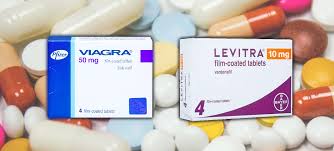
Understanding Rybelsus: A Comprehensive Guide to Its Benefits and Uses
In recent years, the landscape of diabetes treatment has evolved significantly, introducing new medications that offer patients effective management options. One of the notable medications making waves in this field is Rybelsus rybelsus i glucophage, a novel oral medication that targets blood sugar control for individuals with type 2 diabetes. In this article, we will dive deep into what Rybelsus is, how it works, its benefits and side effects, and its position relative to other diabetes treatments.
What is Rybelsus?
Rybelsus (semaglutide) is an oral medication prescribed for adults with type 2 diabetes. It belongs to the class of drugs known as GLP-1 receptor agonists. Unlike traditional diabetes medications that may focus solely on insulin management or blood sugar levels, Rybelsus aims to mimic the hormone GLP-1 (glucagon-like peptide-1) that is released in the gut in response to food intake. By doing so, it enhances insulin secretion in a glucose-dependent manner, suppresses glucagon release, and slows gastric emptying, all of which contribute to better blood sugar control.
How Does Rybelsus Work?
The mechanism of action of Rybelsus is relatively unique. When ingested, it acts on the GLP-1 receptors found in the pancreas, stimulating insulin secretion. This effect is particularly advantageous for controlling postprandial hyperglycemia (high blood sugar after eating). Furthermore, by reducing glucagon secretion, Rybelsus helps to maintain lower blood sugar levels by inhibiting the liver’s glucose output. As a result, patients often experience a dual benefit: improved glycemic control and potential weight loss, as Rybelsus can help curb appetite.
Benefits of Rybelsus
One of the standout advantages of Rybelsus is its convenience. Unlike other GLP-1 receptor agonists that are typically administered via injection, Rybelsus offers a simple oral dosing option, taken once daily. This ease of use can significantly improve patient adherence to diabetes management regimens.

Moreover, studies have demonstrated that Rybelsus can lead to substantial reductions in HbA1c levels, reflecting overall blood sugar control over time. Additionally, many users report weight loss as a favorable side effect, making it an attractive option for those who are overweight or struggling with obesity alongside diabetes.
Potential Side Effects
As with any medication, Rybelsus is not without potential side effects. Commonly reported adverse effects include nausea, vomiting, diarrhea, and abdominal pain, particularly during the initiation of therapy. These side effects often diminish over time as the body adjusts to the medication. However, serious side effects can occur, such as pancreatitis or diabetic retinopathy complications, although these events are rare.
It’s essential for patients considering Rybelsus to discuss their medical history with their healthcare provider, especially if they have a history of pancreatitis or medullary thyroid carcinoma, as this medication may not be suitable for everyone.
Rybelsus vs. Other Diabetes Medications
When comparing Rybelsus to other diabetes medications such as Metformin or Glucophage, several differences unfold. Metformin has long been the first-line medication for type 2 diabetes, known for its safety profile, weight neutrality, and efficacy in lowering blood sugar levels. However, while it primarily works by reducing glucose production in the liver, it does not have the same appetite-suppressing qualities as Rybelsus.
Furthermore, for patients whose diabetes management requires more intensive treatment, Rybelsus may offer a more effective solution with its dual action of blood sugar control and weight loss. Additionally, some patients may prefer the oral formulation of Rybelsus over injectable alternatives like Ozempic, another formulation of semaglutide, which may be less convenient for daily management.
Important Considerations
Before starting Rybelsus, patients should undergo thorough screening and consultations with their healthcare providers. Regular monitoring of blood sugar levels and discussing any emerging side effects is crucial for safe and effective use. Patients are also encouraged to maintain a healthy diet and engage in regular physical activity, which can enhance the efficacy of Rybelsus and contribute to overall well-being.
Conclusion
Rybelsus represents a significant advancement in the field of diabetes management, offering an effective oral option for patients struggling to maintain blood sugar levels. Its unique mechanism of action, coupled with the added benefit of weight loss, distinguishes it from traditional therapies. As with any medical treatment, careful consideration and consultation with healthcare professionals are essential in tailoring diabetes management strategies. As research continues and more patients experience the benefits of Rybelsus, its role in diabetes treatment is likely to grow even more prominent.